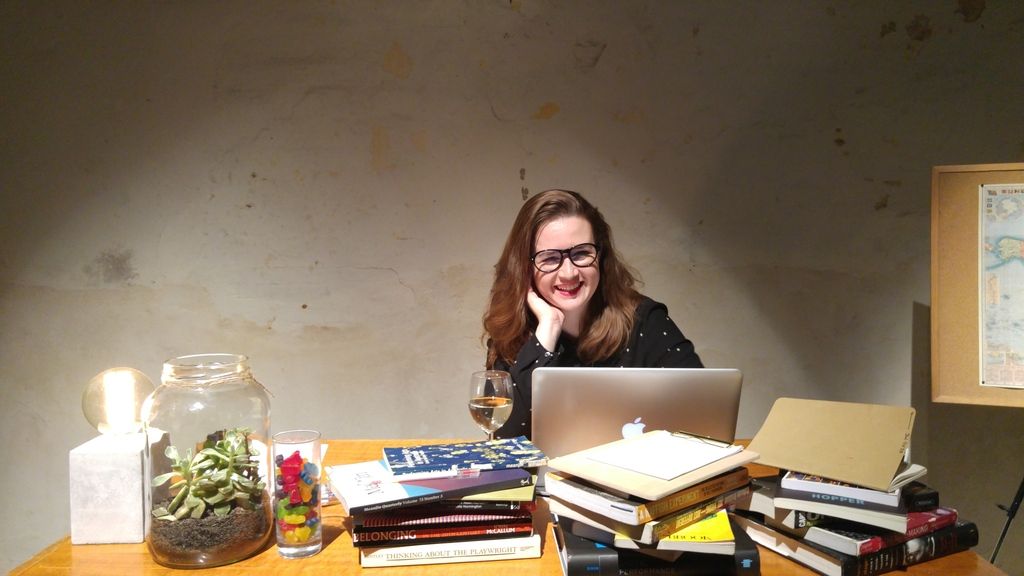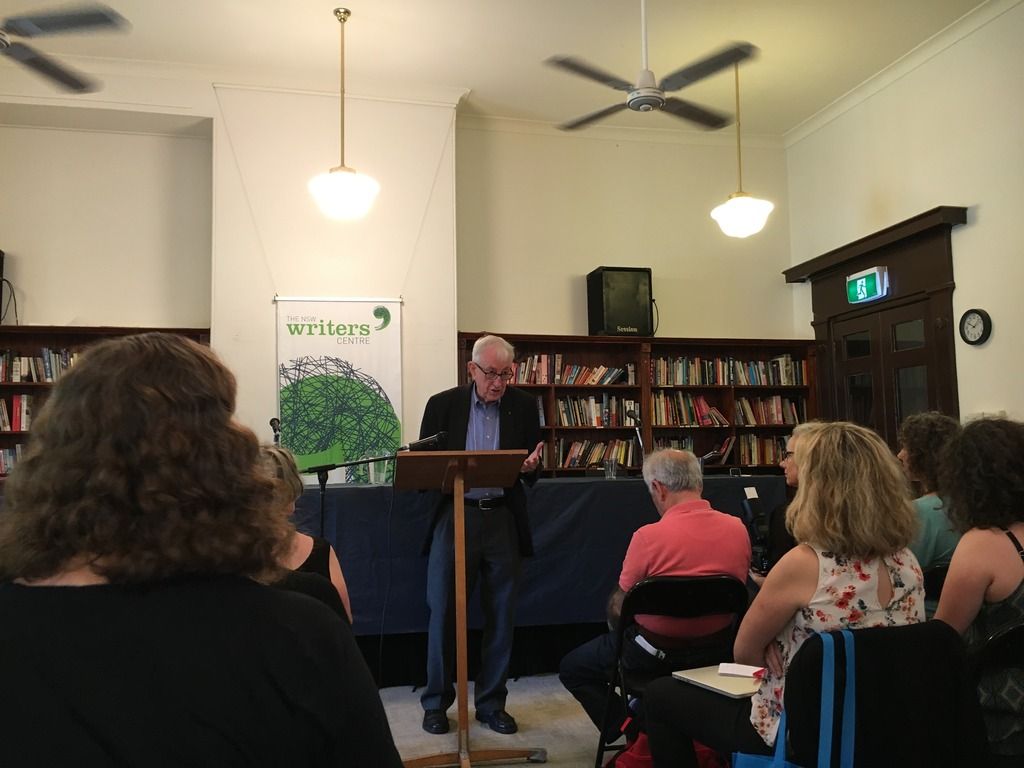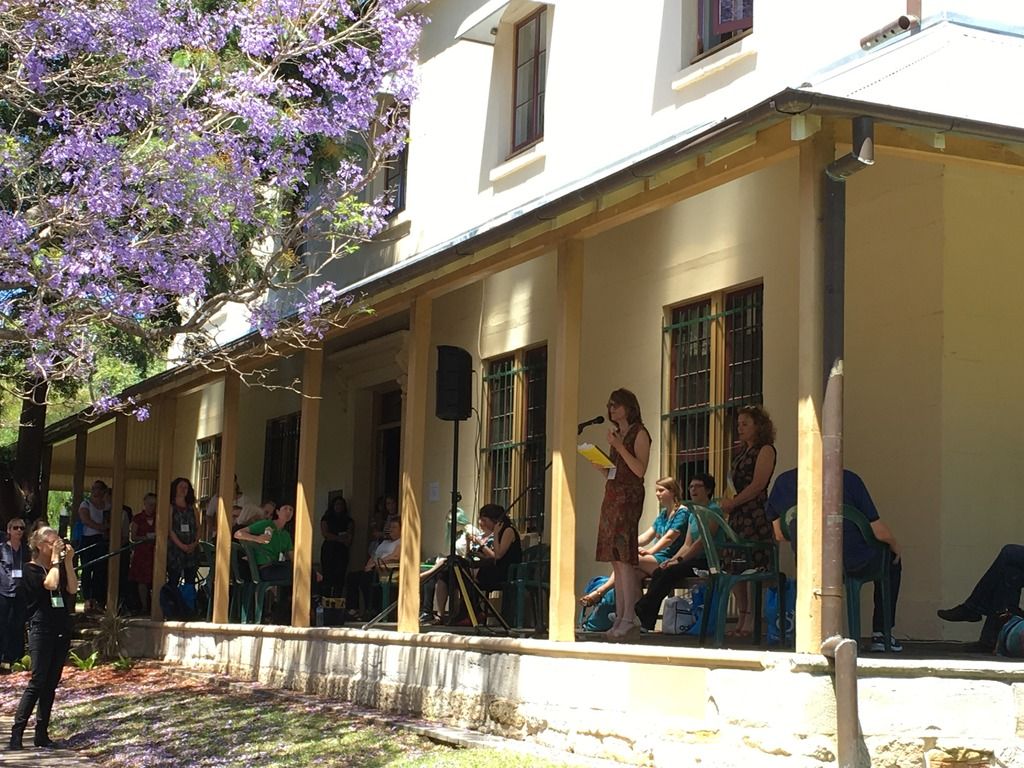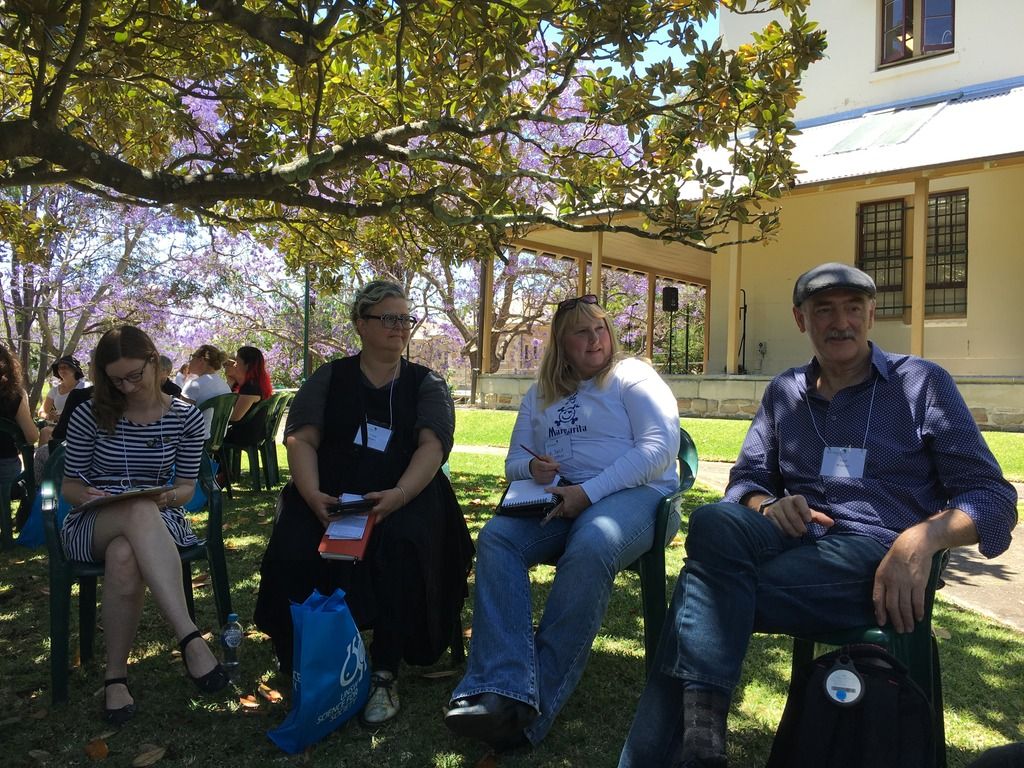 FOMO
FOMO
The Digital Writers' Festival 2016
This is an interview with Jane Howard, Director of the Digital Writers' Festival. The Digital Writers' Festival is unique. Co-ordinated from Melb ...
Read MoreThis is a review of the inaugural Quantum Words Festival, by Sebastian Gonzalez.
This is a review of the inaugural Quantum Words Festival, by Sebastian Gonzalez.
In early November the NSW Writer’s Centre hosted the inaugural Quantum Words Festival 2016: a festival of science and writing. It combined two of my favourite things and as an enthusiastic layperson, it was a great opportunity to hear from people who genuinely knew something about either one of them.

Upon arriving I collected my name tag and was given the option of registering for one of two midday sessions: Writing for Scientists Workshop or Meet the Expert Sessions x 5. Not being a scientist, I chose the latter. The sessions were Q & As with five of the festival’s panellists on a range of topics. ‘Sex & Evolution’ with Rob Brooks was tempting, but not wanting to do things by half, I put my name down for ‘The Universe’ with astronomer Fred Watson and was promptly ushered to a seat for the keynote address by Nobel Laureate and immunologist, Peter Doherty.
In 1996 Peter was awarded a joint Nobel prize, together with Rolf M. Zinkernagel, for groundbreaking research on the immune system and T-cells. His keynote touched on his career, both in science and writing and how the disciplines have changed over the years. Charming and jovial, he’s the kind of gent you wish was an uncle, explaining at one point that science is advanced by funerals – that sometimes scientists need to ‘get out of the way’. He ended by reminding us that we are a construct of nature and not the other way round.
Happily, Peter then joined the panel for the first session of the day, What is Science Anyway?. Chairing was Festival Director Jane McCredie, joined by academic and author Tony Birch, evolutionary biologist Rob Brooks, journalist Jo Chandler and science communicator and PhD student, Upulie Divisekera. The panel took turns providing their personal take on the nature of science, at its simplest described as “a way of sorting good ideas from bad”.
Tony Birch provided some unique insights into Indigenous knowledge systems and non-Western means of approaching science, highlighting current research into oral traditions and myths which captured responses to environmental threats thousands of years ago.
Peter, however, again stole my heart by describing his scientific process as ‘reverse alchemy’, starting with what you think is gold and after repeated experiments realising you have shit. A similar process often applied in my writing.
From this point the day split into two streams and the next session I attended was Creative Collaborations, where Fred Watson chaired a discussion on crossovers between art and science, joined by playwright James Saunders and poet Alicia Sometimes. Each spoke to their individual projects: James’ most recent effort being a multi-faceted meta play on neuroscience, while Alicia discussed ‘Elemental’, a multimedia exploration of science and the mind within a planetarium. My main takeaway was that science is underfunded, the arts are underfunded, and when you combine the two, you do not get double.

At midday we broke for The Expert Sessions which were held outside under the jacaranda trees where Fred generously enlightened us on space, time, spacetime, and everything in between. At one point my overheated brain disengaged and I interrupted him to ask his thoughts on reality being a simulation, to which, despite my questioning his existence, he was very accommodating.

During the lunch break, I scoffed down my pre-ordered kafta wrap while Dr Cathy Foley launched a book, ‘The Best Australian Science Writing 2016’, featuring many of the festival’s luminaries.
The first session after the break was How Science Made Me A Better Writer and it was evident that the heat and full stomachs were taking their toll on the audience. Every so often someone would drift off to the makeshift cafe on the verandah, or just drift off, myself included.
Being something of a sci-fi buff the next panel was one of the most enjoyable, Could Science Fiction Save The World? The answer in short, is no, but it has at times served as an under-acknowledged source of inspiration for actual science, which is what will save the world, if it’s not already too late. James Bradley, author of the critically acclaimed Clade, stole the show. With a panel populated by mostly dystopic writers, freshly post-Trump, it was looking like the day might end on a low-point, until we were rescued by a rapping ecologist.
The final session for the day was Pitch Your Science Story Idea, where scientists and science writers were invited to present a 2 minute pitch to a panel of journalists and science communicators for feedback. While not the winning pitch, David Wong’s rap on lizards, with the audience providing the beat, nicely rounded out the day before we assembled on the verandah for wine and science comedy courtesy of scientist, writer and comedian Bish Marzook, which was much better than it sounds.
For an inaugural festival, Quantum Words was tightly run and well attended, both on the floor and on the panels. With any luck, 2017 will only be bigger and better.

Sebastian is an emerging writer based in Sydney. His interests include science, writing and the impending techno-apocalypse. He never quite manages to tweet @sgbarlia.
 FOMO
FOMO
This is an interview with Jane Howard, Director of the Digital Writers' Festival. The Digital Writers' Festival is unique. Co-ordinated from Melb ...
Read More FOMO
FOMO
This is a review of the 2016 This is Not Art Festival, by Cameron Colwell. 2016 is the second year I attended Newcastle's This Is Not Art festiva ...
Read More FOMO
FOMO
This is the Writers Bloc Guide to the 2016 This Is Not Art Festival. The This is Not Art Festival is almost upon us! This means the Newcastle You ...
Read More